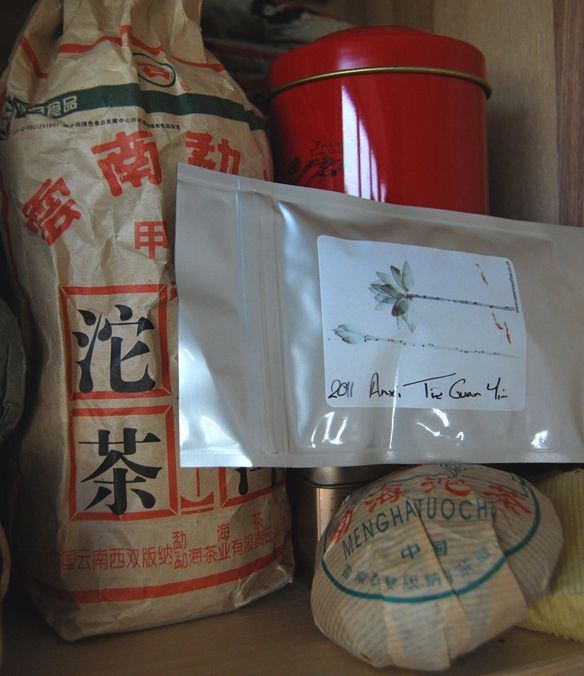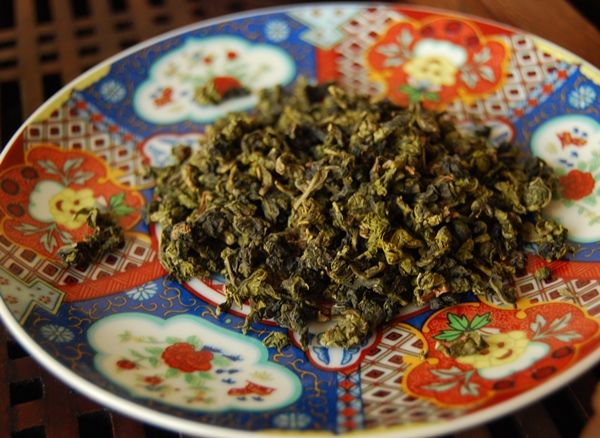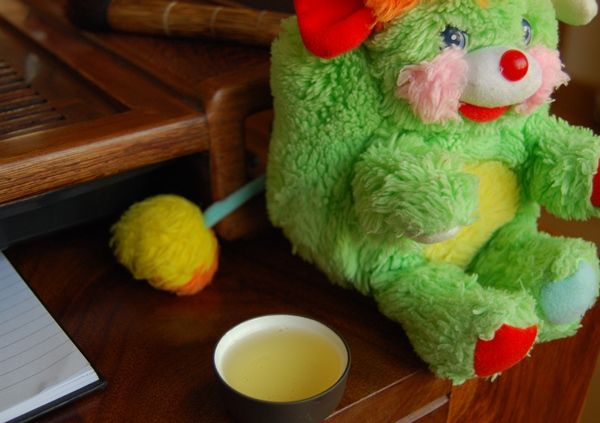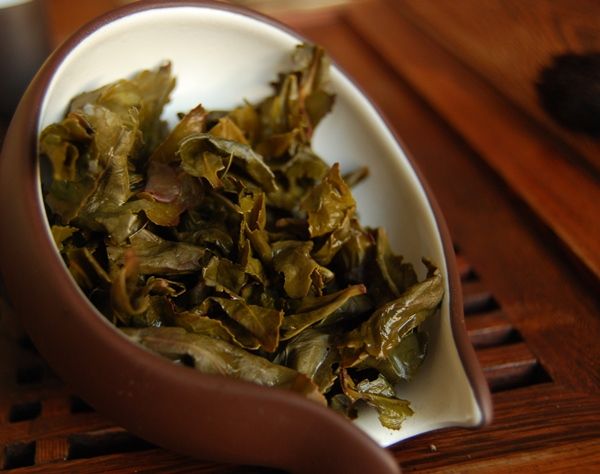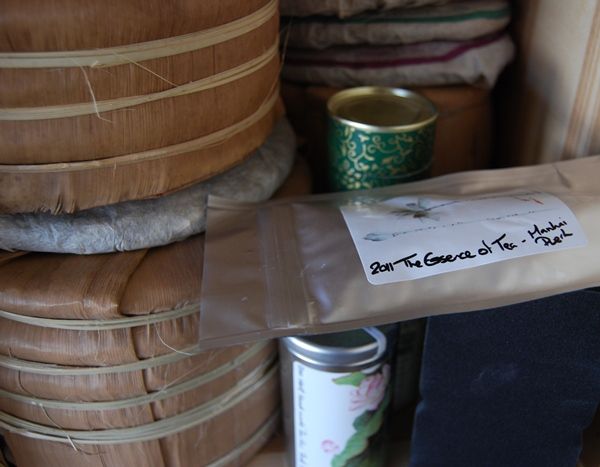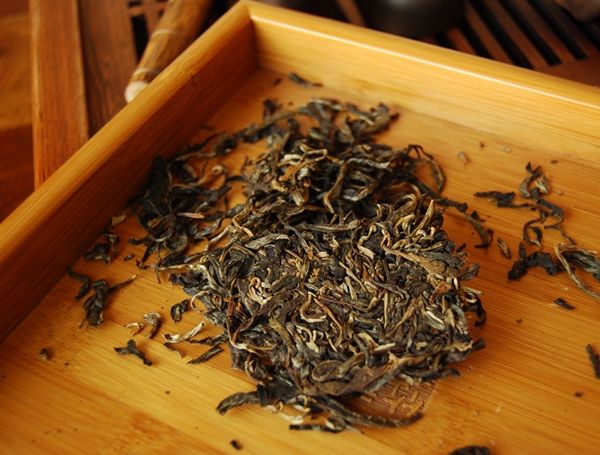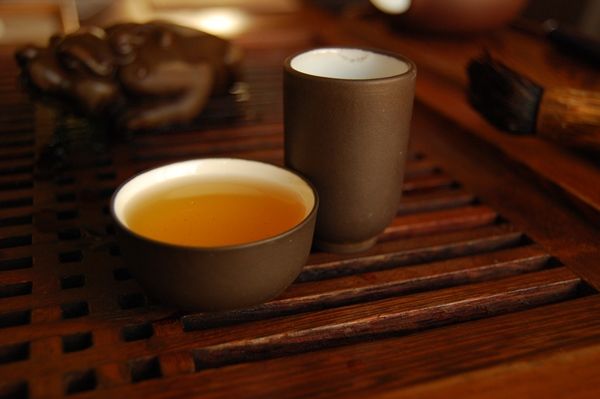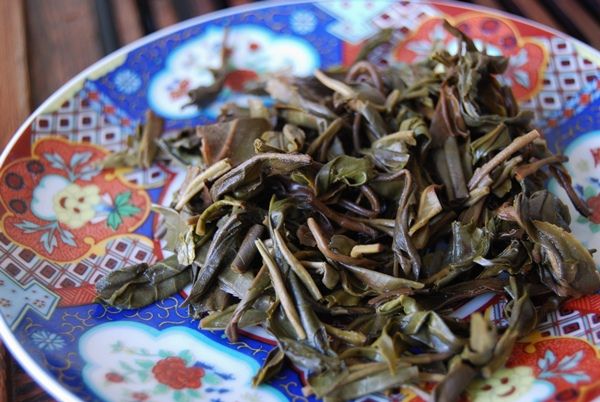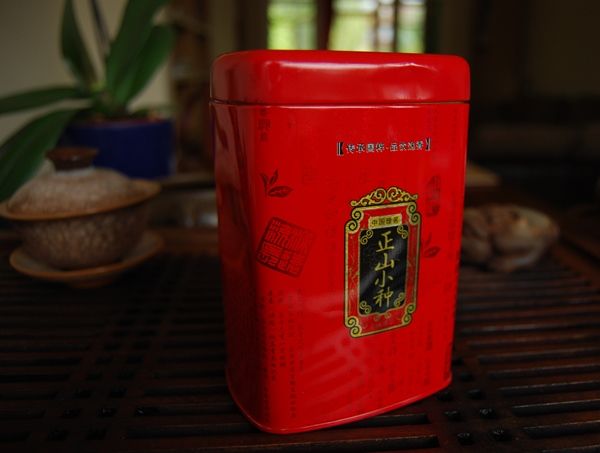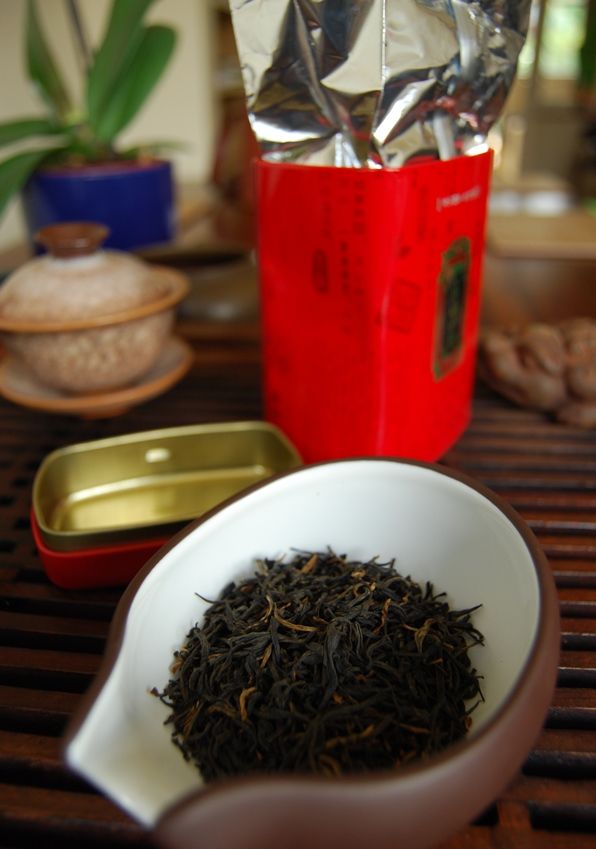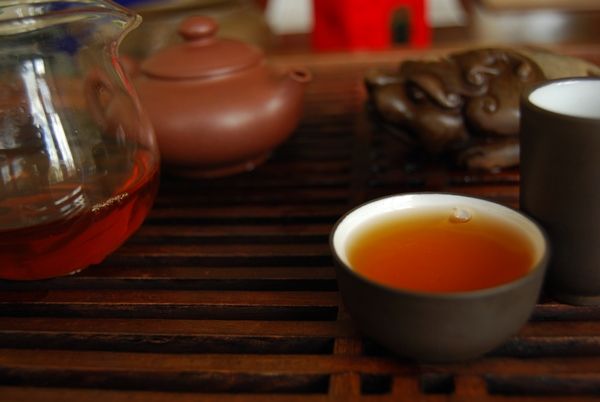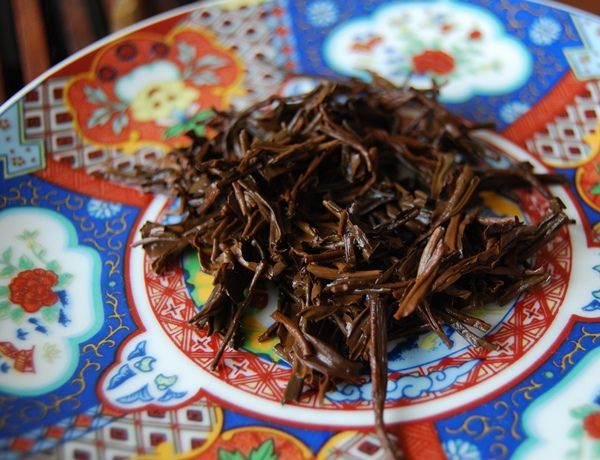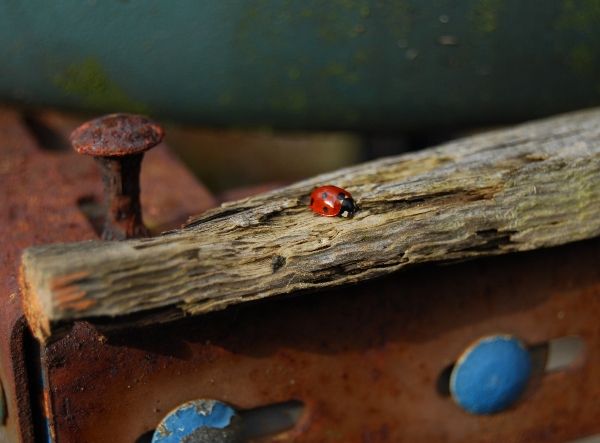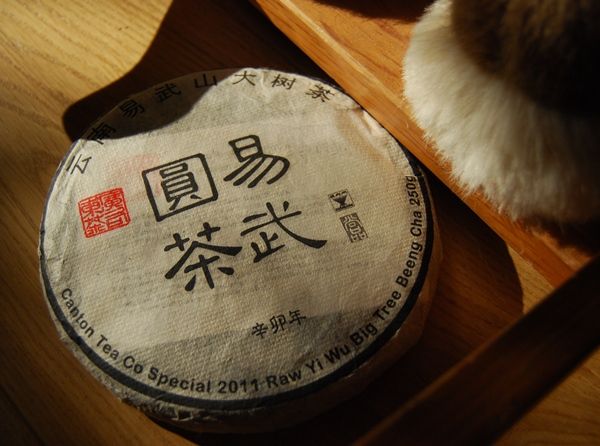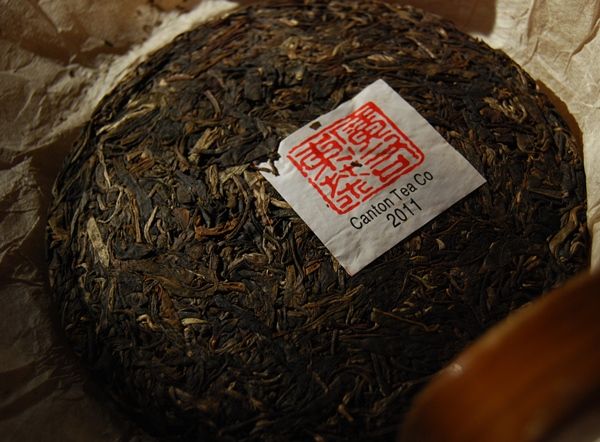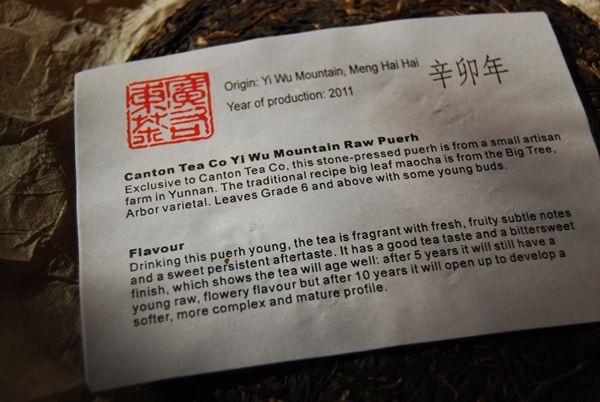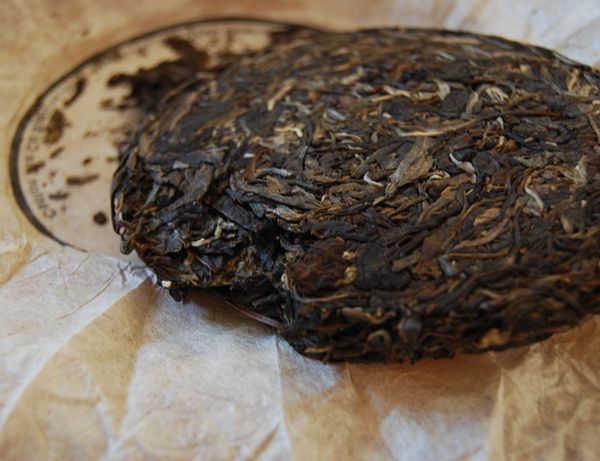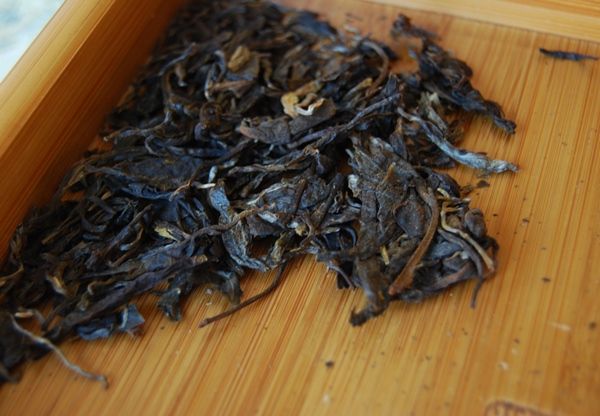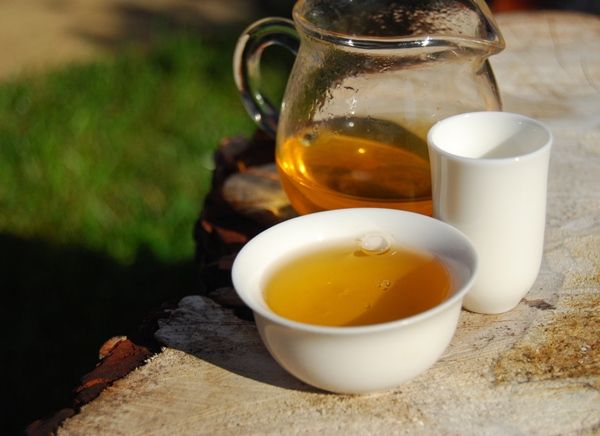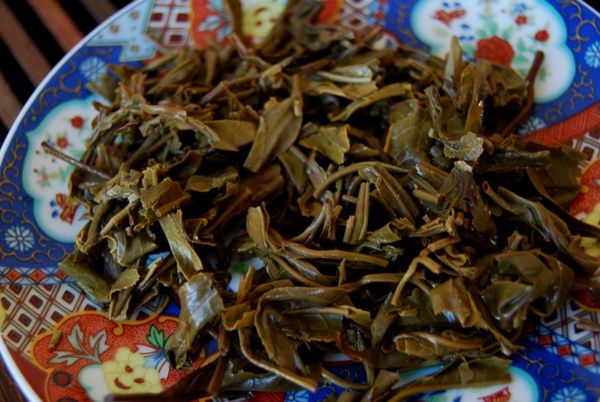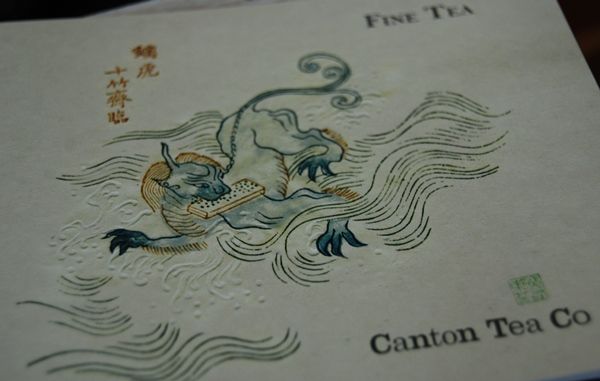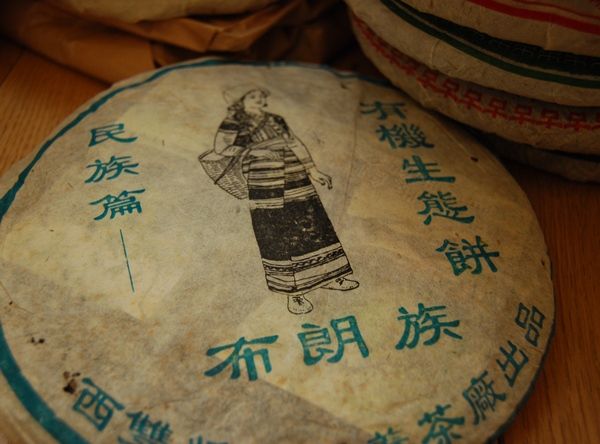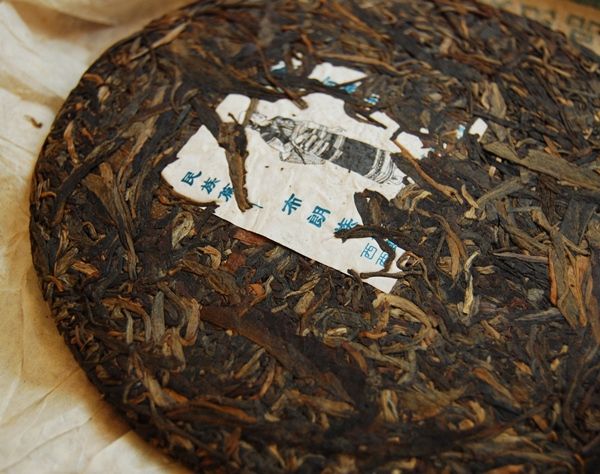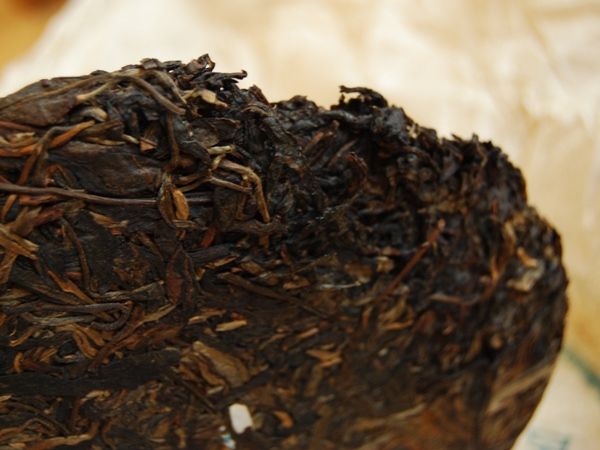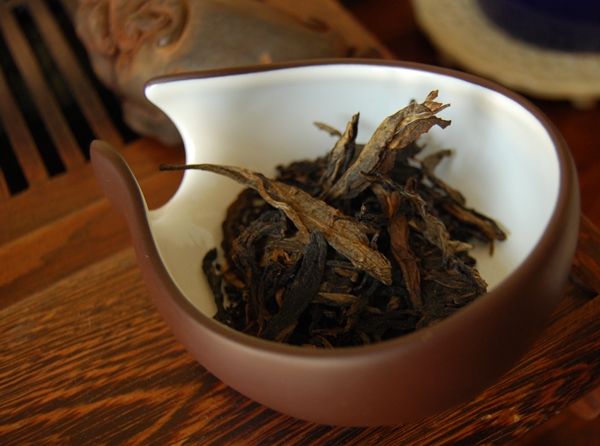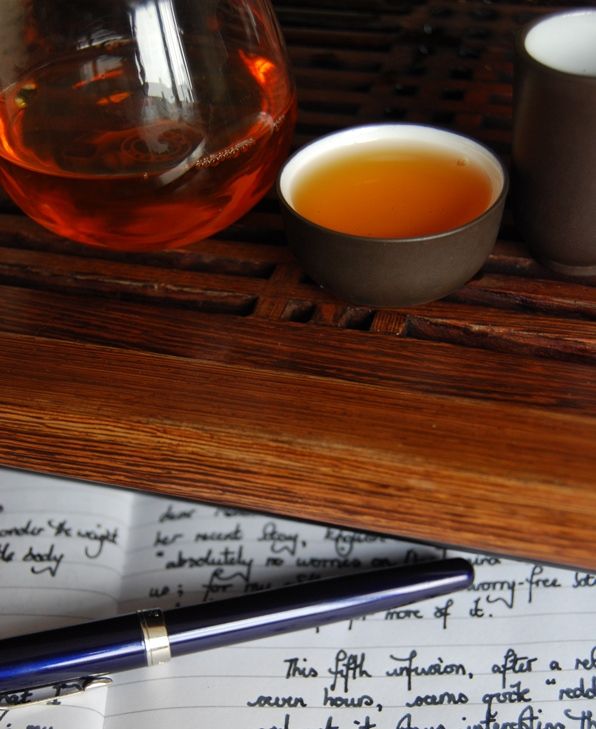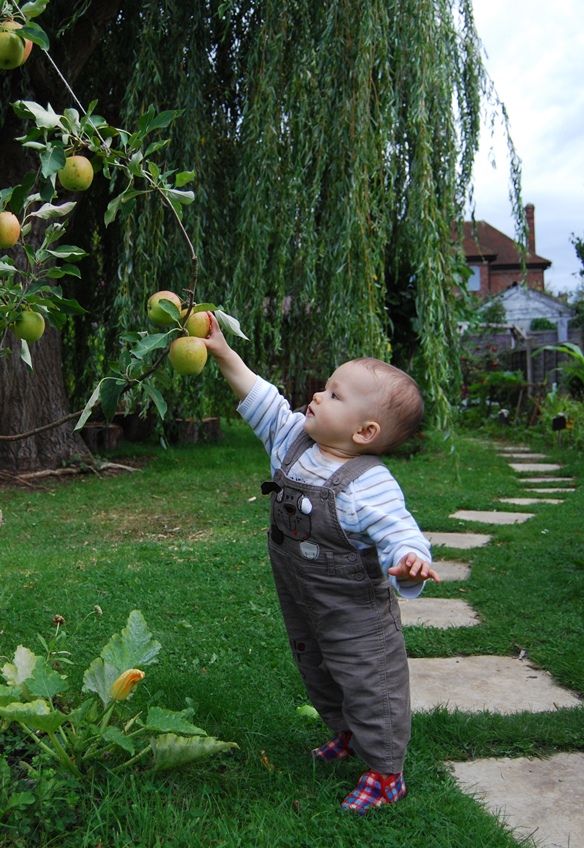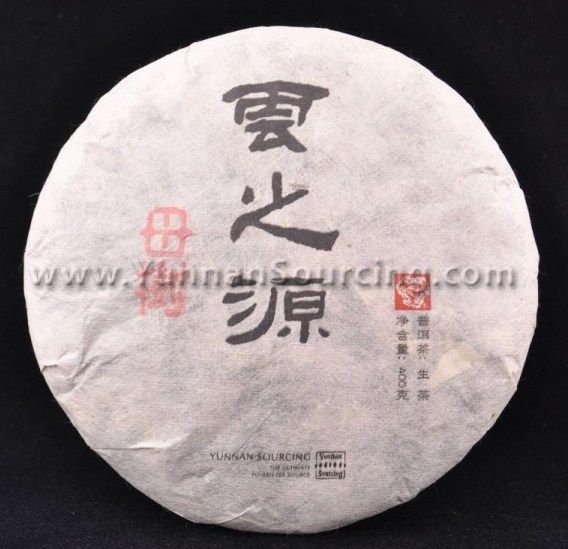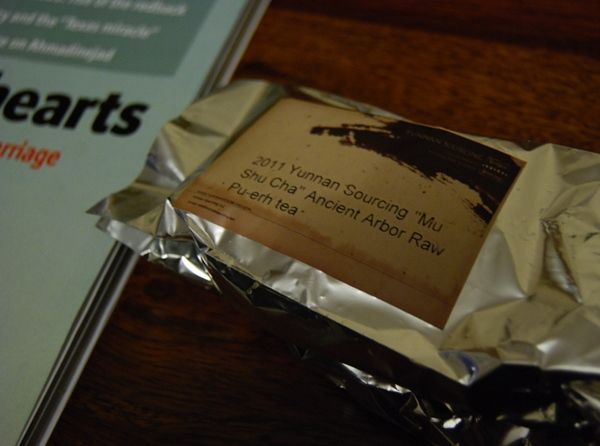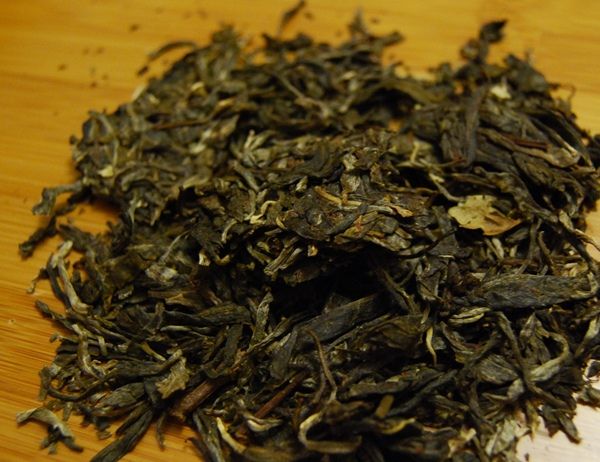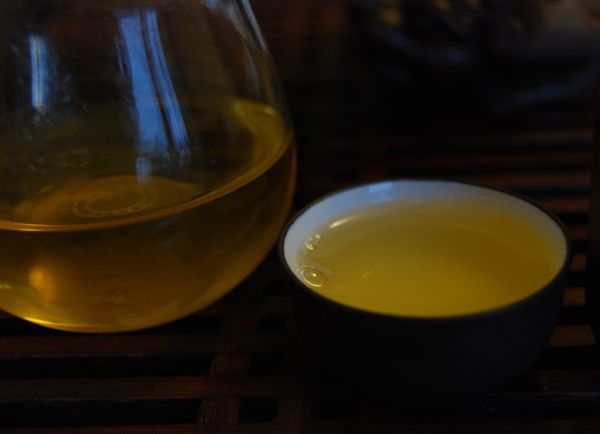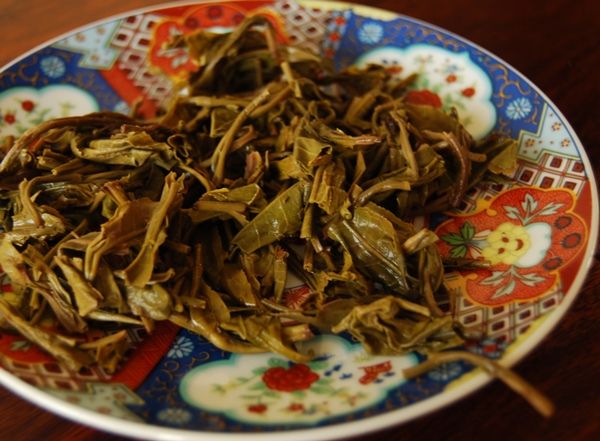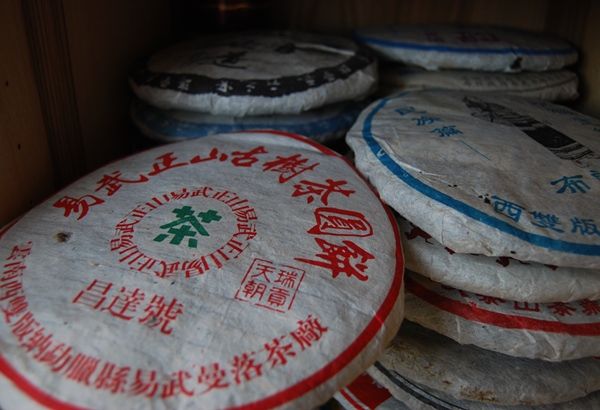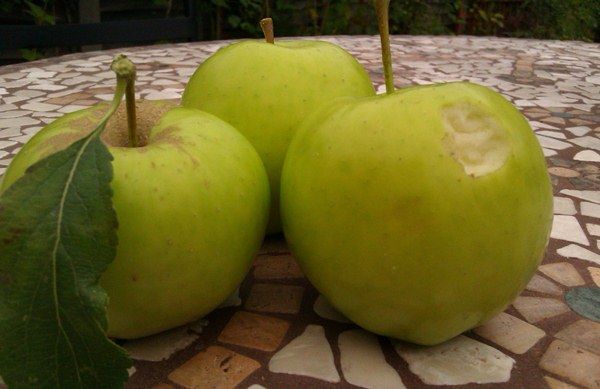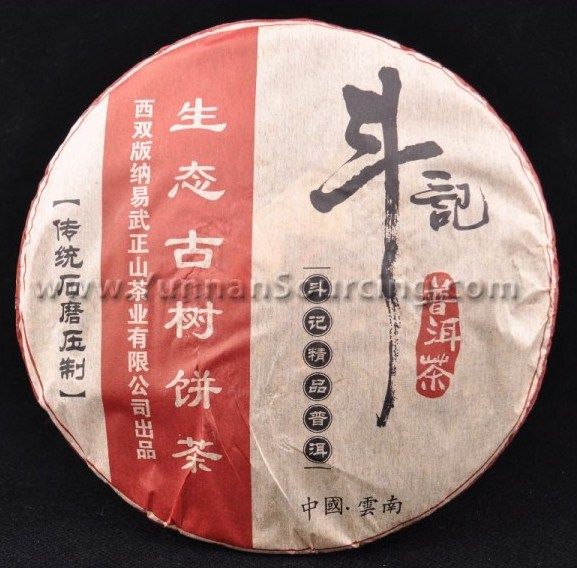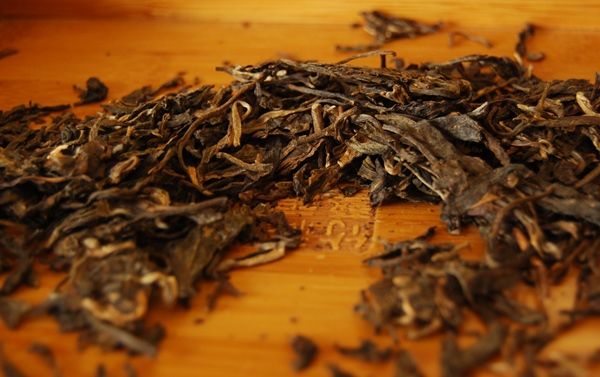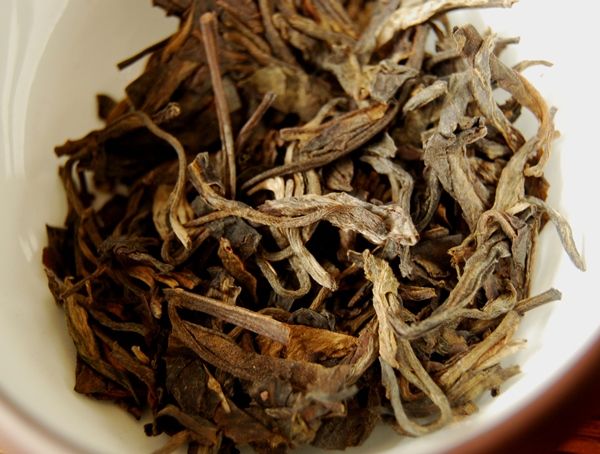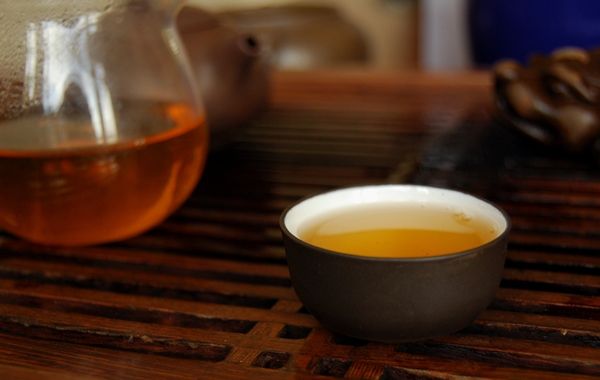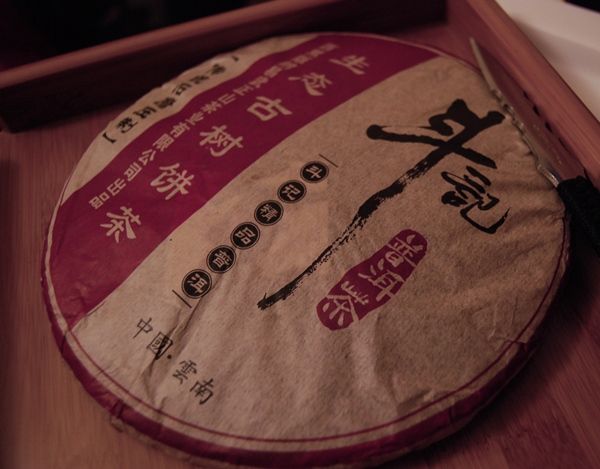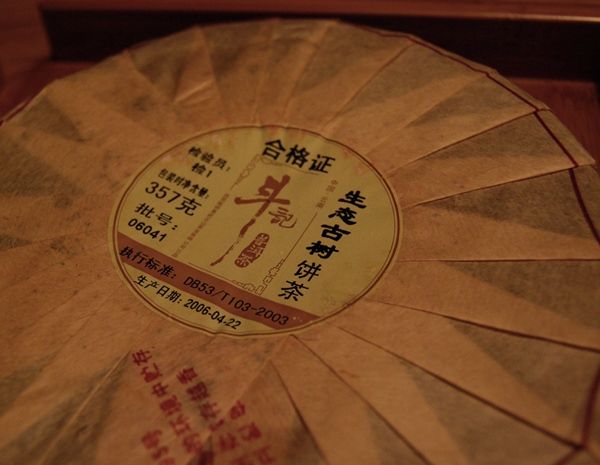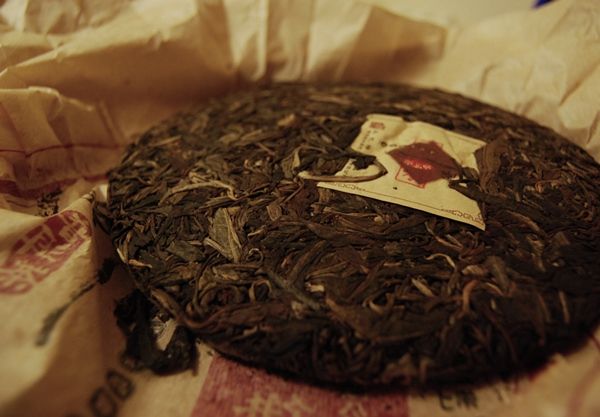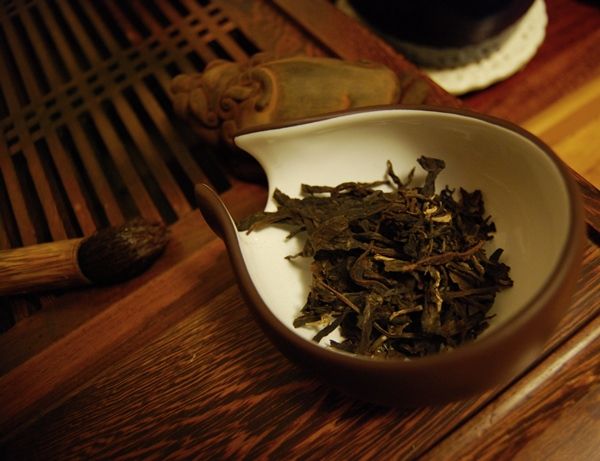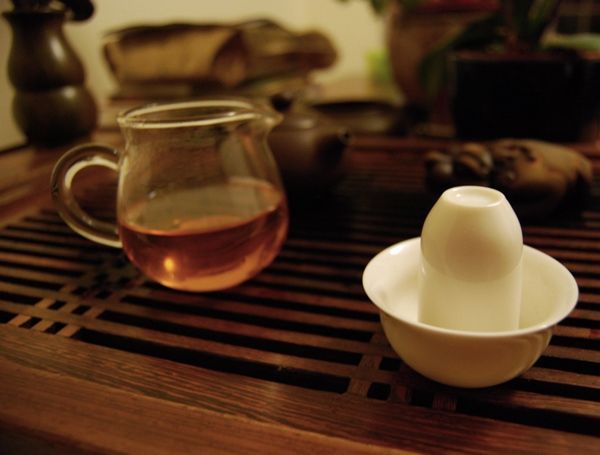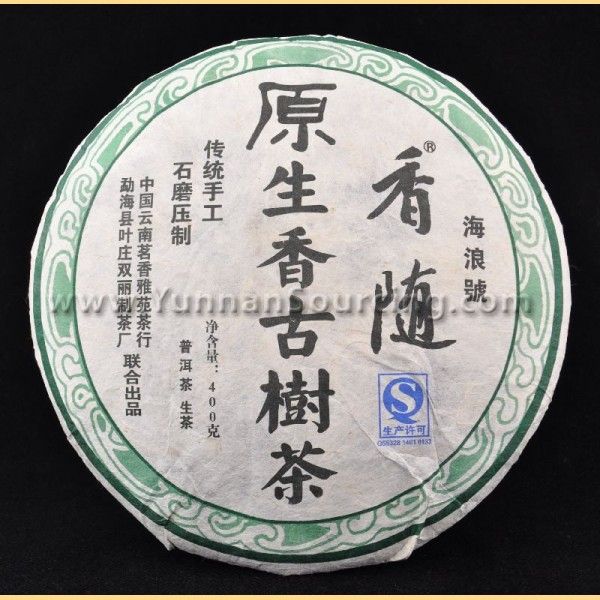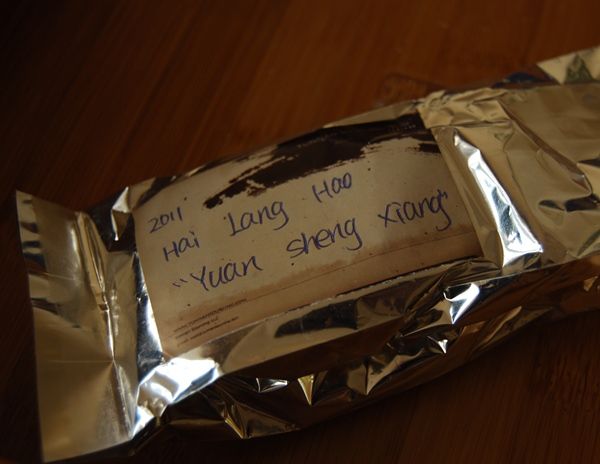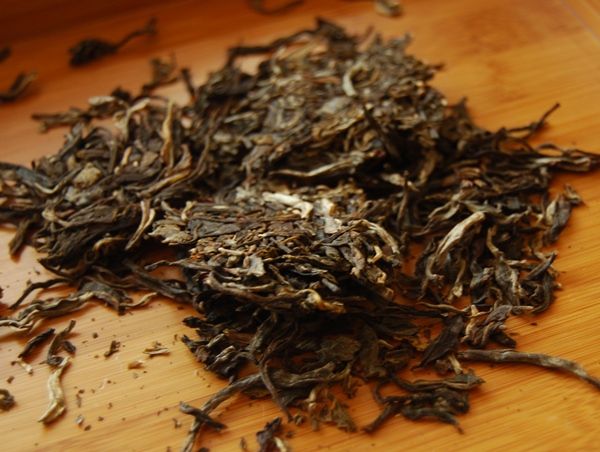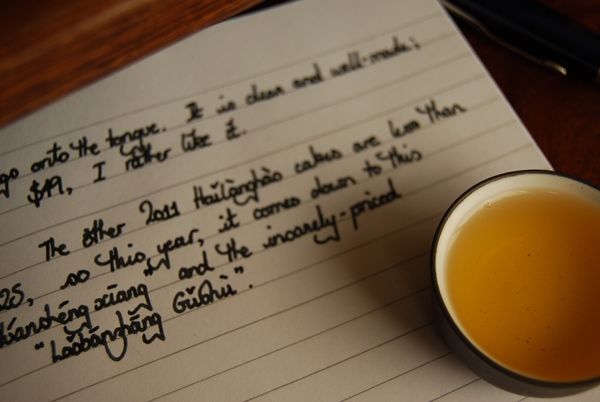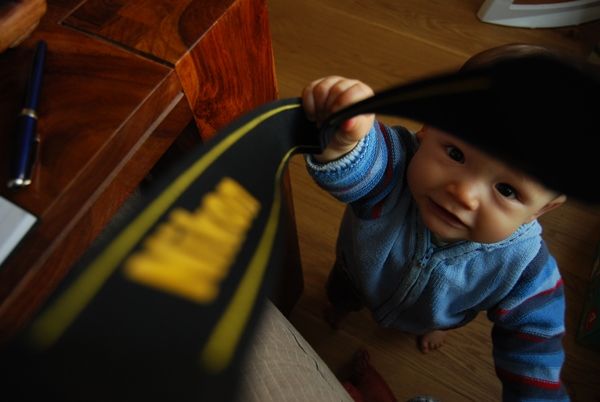I don't drink tieguanyin.
It's not that I don't like it - it's just that I think it's a drink for girls, or fascinating girl-man hybrids. It is, for want of a better adjective, namby pamby.
Imagine my delight when the ever-generous proprietor of Essence of Tea kindly provided us with the sample shown above, which is, if their track record is anything to go by, likely to be very decent. Given Mr. and Mrs. Essence's firm, unshakeable grasp of all things delicate and fine in tea (possibly at odds with my own quest for rough, violent, potent pu'ercha), I anticipate that this will be a charming, refined wulong.
I am not disappointed.
As I reveal the pretty contents of the sample packet, I can feel my testosterone levels steadily decreasing. The leaves are beautiful, rolled examples of the genre.
Perhaps it will not surprise you to learn that it has a clean, green, buttery scent - it rather reminds me of the honeysuckle that my German neighbours (who are both materials scientists, by coincidence) are growing over our fence, in a most pleasant and welcome contravention of neighbour-neighbour boundary lines.
It is at this stage that I will not make a joke about the stereotypical German race. Some of my best friends are German. Some of my teachums are German. I'm pretty sure that somewhere in the dim genetic mists of my family tree, there are some German branches. Therefore, I will simply leave this paragraph dangling in the air, and allow you, dearest Reader, to fill in the gap using your imagination.
Much like the Germans' honeysuckle, this tieguanyin reminds me of summer. It is soapy, floral, and buttery in a gentle way. I wonder if it is perhaps a little too gentle for my tastes, but I am not a delicate soul.
While I feel the oestrogen building up within my body, I take time to reflect on the careful provenance of this most ethereal of tieguanyin. It is from Xiping [shee-ping], which is an Anxi [an-shee] town famous for (allegedly) being the birthplace of tieguanyin. This is not to be confused with the (perhaps marginally more famous to non-tea drinkers) town of Xiping next to my wife's hometown in the historical central part of China, which is famous for various Warring States and Tang Dynasty sites.
Mr. Essence writes that this tea comes from a mountain that goes by the stupefyingly descriptive name of "Laochashan" [old tea mountain], near Yaoyang Village, in the Xiping locale. He also notes that he has tried very hard to find a truly organic version of tieguanyin from this area.
For the last few days, Xiaohu has been sitting on his father's lap, taking the last few sips from each infusion directly out of the pinmingbei [drinking cup]. He has enjoyed several pu'ercha, and genuinely seems to like drinking both new and older shengpu.
My concerns regarding my son's masculinity are eased, as it is with some satisfaction that I observe Xiaohu refusing to drink any more of this tieguanyin after the first few sips.
So there you have it. This is a delicious tea, and while it may or may not cause you to experience some gender-related issues after consumption, my little son gives it the "thumbs down". In fact, he seemed more content to suck on the handle of the tea-brush, and that probably tastes like damp bamboo.
Thanks again to Mr. Essence for the genuinely delightful sample. If you one of those types of people that enjoys tieguanyin, you probably owe it to yourself to have a quick go with a decent organic example such as this from Xiping.
(Currently £34/100g, which reaffirms my conviction that wulong prices can tend to be a touch higher per unit enjoyment than I am comfortable paying - a conclusion that seems to hold across most vendors. At least for the money, in this case, you are getting a very pretty tea with assured provenance.)

